 Petzlover
Petzlover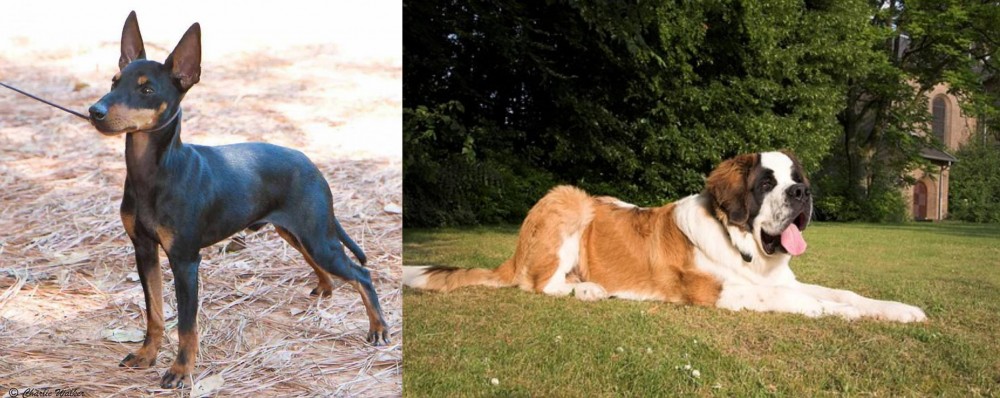 English Toy Terrier (Black & Tan) is originated from United Kingdom but St. Bernard is originated from Switzerland. English Toy Terrier (Black & Tan) may grow 36 cm / 14 inches shorter than St. Bernard. English Toy Terrier (Black & Tan) may weigh 86 kg / 189 pounds lesser than St. Bernard. English Toy Terrier (Black & Tan) may live 3 years more than St. Bernard. Both English Toy Terrier (Black & Tan) and St. Bernard has almost same litter size. English Toy Terrier (Black & Tan) requires Moderate Maintenance. But St. Bernard requires High Maintenance
English Toy Terrier (Black & Tan) is originated from United Kingdom but St. Bernard is originated from Switzerland. English Toy Terrier (Black & Tan) may grow 36 cm / 14 inches shorter than St. Bernard. English Toy Terrier (Black & Tan) may weigh 86 kg / 189 pounds lesser than St. Bernard. English Toy Terrier (Black & Tan) may live 3 years more than St. Bernard. Both English Toy Terrier (Black & Tan) and St. Bernard has almost same litter size. English Toy Terrier (Black & Tan) requires Moderate Maintenance. But St. Bernard requires High Maintenance
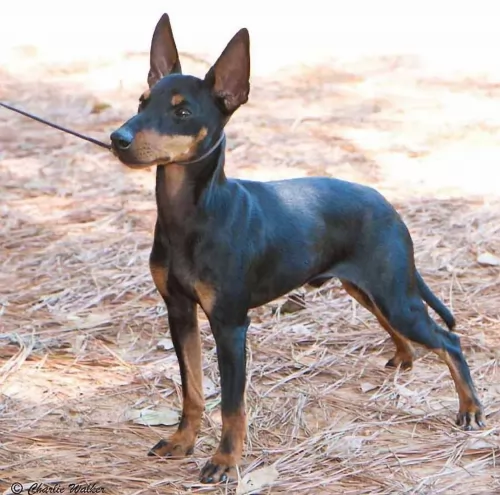 They English Toy Terrier (Black & Tan) is closely related to the Manchester Terrier and the Old English Black and Tan Terrier. The English Toy Terrier was developed to entertain humans in the rat pit due to its speed and agility. This is a sport that was very popular in English cities during Victorian times. Terriers went into the pits with a large number of rats and the winner would be the dog that killed a certain number of rats the fastest. The watchers would take bets on their favorite dog.
They English Toy Terrier (Black & Tan) is closely related to the Manchester Terrier and the Old English Black and Tan Terrier. The English Toy Terrier was developed to entertain humans in the rat pit due to its speed and agility. This is a sport that was very popular in English cities during Victorian times. Terriers went into the pits with a large number of rats and the winner would be the dog that killed a certain number of rats the fastest. The watchers would take bets on their favorite dog.
The English Toy Terrier was developed to be smaller than the Manchester Terrier, because smaller dogs were desired for the pit. In 1848 a small 2.5 kg black and tan terrier took less than an hour to kill 300 rats. When the Kennel Club was formed the sport of rat killing was outlawed. Because it was such a good looking dog, the black and tan was soon excelling in the show ring. To begin with there was one breed of Black and Tan Terriers and two weight classes. In 1920, the two were divided into separate breeds – the Manchester Terrier and the Black and Tan Terrier. It wasn’t until 1962 that the name changed to the English Toy Terrier (Black and Tan).In 1959, the declining numbers of Manchester Terriers caused the AKC to combine them again into one breed with two kinds: Toy and Standard.
Today the English Toy Terrier is one of the most vulnerable of the native breeds and efforts are in place to increase the gene pool and popularity of the dog. The UKC has also re-registered the English Toy Terrier (Black and Tan) in the stud book if it is a certified Toy. The breed is not AKC recognized.
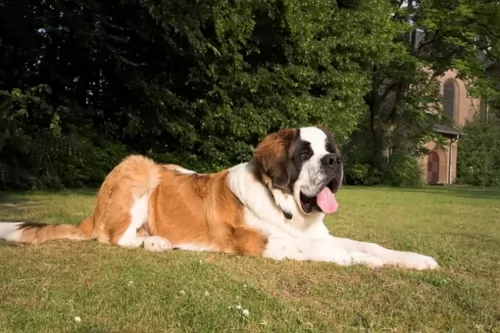 The St Bernard breed was once called the Alpine Cattle Dogs or the Alpine Mountain Dogs. They have always been farm dogs and mountain dogs in the French and Swiss Alps. They come from the border land of Switzerland and France. They were herding dogs, hunting, search and rescue, watchdogs and draft dogs.
The St Bernard breed was once called the Alpine Cattle Dogs or the Alpine Mountain Dogs. They have always been farm dogs and mountain dogs in the French and Swiss Alps. They come from the border land of Switzerland and France. They were herding dogs, hunting, search and rescue, watchdogs and draft dogs.
Their ancestors are considered to include the Sennenhunds and molosser breeds that came to the Alps with the ancient Romans. There are four Sennenhund breeds that are believed to have contributed to the original St. Bernard. These included the Greater Swiss Mountain Dog (Grosser Schweizer Sennenhund), the Appenzeller (Appenzeller Sennenhund), the Bernese Mountain Dog (Berner Sennenhund) and the Entlebucher Mountain Dog (Entlebucher Sennenhund) Today the St. Bernard is considered a Molossoid breed.
The first we know of the St. Bernard in any written records was in 1707 at the Great St. Bernard Pass and Great St. Bernard Hospice run by monks. There were found paintings of the dogs dating back into the late 1600’s. It is told that Barry saved upward of 100 people in the St. Bernard pass, and it is from these stories that the dogs gained their snow rescue reputation.
The St. Bernard of that time did not look like the St. Bernard does today as there was much crossbreeding. Many dogs dies during rescues in the avalanches of the mid 1800’s and so they Saint was crossed with the Newfoundland to preserve the breed. You can today see the resemblance in the build and looks of the two breeds. This cross brought about the long haired St. Bernard whose fur was too heavy for rescues.
The St. Bernards of mountain rescue fame were only about the size of a German Shepherd dog and were short haired. After crossing with the Newfoundland and moving into clubs and dogs shows, they have been bred to be much larger. Before the stud book was closed, it is thought that many larger breeds such as the Greater Swiss Mountain Dog, the English Mastiff, the Tibetan Mastiff, the Rottweiler, the Great Pyrenees, the English Bulldog, the Great Dane, the Bernese Mountain Dog, the Boxer and the Caucasian Oycharka all contributed to today’s St. Bernard.
In 1884 The Swiss St. Bernard Club was founded and the breed entered the Swiss Stud book as its first entry in 1884. It was 1888 when the standard was approved and the breed became the national dog of Switzerland. Before the name St. Bernard came to be common, these dogs might be called, Barry Dogs, Alepnmastiff, Noble Steeds or Saint Dogs.
The dogs came to England in the early 1800s and to the United States soon after. They were recognized by the European kennel clubs first and by the early 1900’s they were the most popular breed in the AKC.
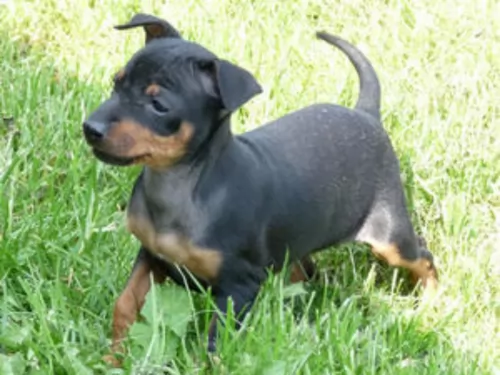 The English Toy Terrier is a small compact breed that resembles the Miniature Pinscher and the Manchester Terrier. The English Toy Terrier has a narrow but long head with a black nose, wedge muzzle and dark, almond shaped eyes. The ears are flame shaped and the chest is deep and narrow. He has thick legs and a tapered tail. The breed is of course black and tan – with the tan on the face, chest and legs.
The English Toy Terrier is a small compact breed that resembles the Miniature Pinscher and the Manchester Terrier. The English Toy Terrier has a narrow but long head with a black nose, wedge muzzle and dark, almond shaped eyes. The ears are flame shaped and the chest is deep and narrow. He has thick legs and a tapered tail. The breed is of course black and tan – with the tan on the face, chest and legs.
 Today’s St. Bernard is not a large dog, he is a giant dog. Weighing in at 140-200 pounds and standing 28 to 35 inches tall, he is a lot of dog. Bred with mastiffs and large mountain dogs, they have proportional and powerful build. They are strong, sturdy and well muscled. They have either a smooth or rough (short or long) coat. Their eyes are brown or occasionally blue. They have tight lids, and square heads and muzzles.
Today’s St. Bernard is not a large dog, he is a giant dog. Weighing in at 140-200 pounds and standing 28 to 35 inches tall, he is a lot of dog. Bred with mastiffs and large mountain dogs, they have proportional and powerful build. They are strong, sturdy and well muscled. They have either a smooth or rough (short or long) coat. Their eyes are brown or occasionally blue. They have tight lids, and square heads and muzzles.
There are two coat types called smooth and rough, or short and long. The smooth shorter coat is tough, flat and close against the body and the long, rough coat is dense, wavy and heavy around the legs, neck and ruff. Both types have long tails that hang low and are heavy. Saints are known to slobber, drool and snore.
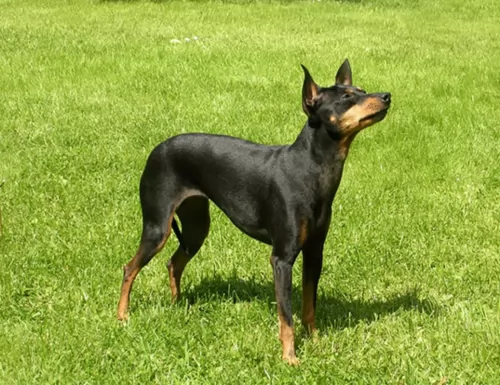 The English Toy Terrier is a stubborn, strong willed little dog. It has a fearless disposition and its alertness make it a great candidate for a guard dog despite its size. They will chase small animals due to their innate prey drive. They are affectionate and loyal and need to be with people. They love to be cuddled and petted, but usually choose one person that they become very close to. He is more than a lap dog. He can be playful, or he can be a small working dog.
The English Toy Terrier is a stubborn, strong willed little dog. It has a fearless disposition and its alertness make it a great candidate for a guard dog despite its size. They will chase small animals due to their innate prey drive. They are affectionate and loyal and need to be with people. They love to be cuddled and petted, but usually choose one person that they become very close to. He is more than a lap dog. He can be playful, or he can be a small working dog.
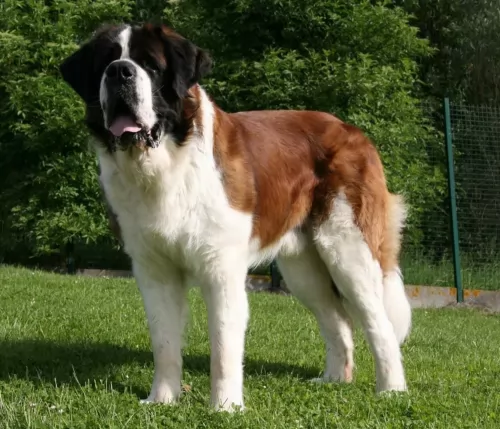 3.Adaptability no - these are giant dogs that need a lot of room. A large fenced yard or farm is best. They won’t do well in an apartment. They need exercise every day and loping around a yard is very good for them. They love to play in the snow, carry a backpack or pull a cart. They love to have a “job”
3.Adaptability no - these are giant dogs that need a lot of room. A large fenced yard or farm is best. They won’t do well in an apartment. They need exercise every day and loping around a yard is very good for them. They love to play in the snow, carry a backpack or pull a cart. They love to have a “job”
4.Learning ability – They are smart and highly trainable if motivated. They may appear lazy but they are just laid back and need a motivation.
 Like many Toy dogs, the English Toy Terrier is susceptible to:
Like many Toy dogs, the English Toy Terrier is susceptible to:
Dislocated kneecap – many small breeds are susceptible to this.
There has been a congenital line of deafness in the English Toy Terrier since it was developed with a cross from the English White Terrier. Unfortunately, some still breed these deaf dogs and continue to pass on the condition.
More painful than in the human eye, pressure builds up behind the eye ball. Dogs build up more pressure than humans and this can lead to blindness.
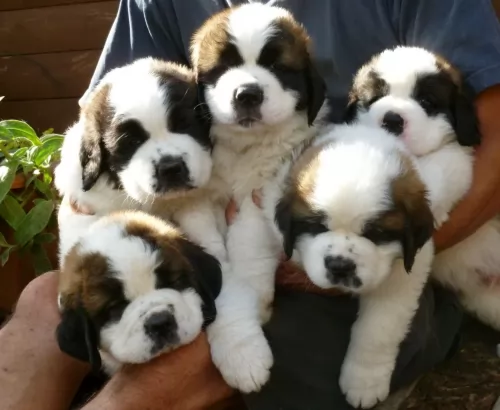 The first problem this breed faces is how fast they grow and gain weight. This can lead to serious health issues if not controlled. Their bones can be damaged by this excessively fast rate of growth. Other issues facing the breed include:
The first problem this breed faces is how fast they grow and gain weight. This can lead to serious health issues if not controlled. Their bones can be damaged by this excessively fast rate of growth. Other issues facing the breed include:
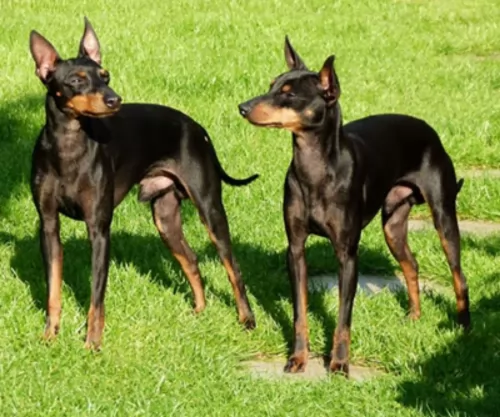 As a high energy small dog feed a high quality dry food that is designed specifically for small dogs. Feed about ¼ of a cup of food split into 2 meals.
As a high energy small dog feed a high quality dry food that is designed specifically for small dogs. Feed about ¼ of a cup of food split into 2 meals.
In addition to the health issues mentioned above:
This is an inherited blood disease in which a lack of protein has a negative effect of the platelets. This causes them not to form clots and so the dog has a bleeding issue.
Degeneration of the femur ball joint due to a blood deficiency issue. This can lead to arthritis.
Affects the lens by blocking the drainage from the eye creating a glaucoma like pressure.
The English Toy Terrier can develop skin issues so watch him closely.
The English Toy Terrier can be very energetic but that doesn’t actually mean she needs a ton of exercise. Because she is small she does not need as much as you might think. A half hour walk once a day is enough or just letting her run in your fenced yard.
He is an intelligent little dog who needs mental stimulation as much if not more than the solution. Play games like catch, hide and seek, frisbee, and performing tricks.
 1.Feeding the puppy – You want to control their growth. Do not overfeed, and make sure they exercise but not too much. Feed a high quality large breed puppy food 3-4 X a day in small amounts.
1.Feeding the puppy – You want to control their growth. Do not overfeed, and make sure they exercise but not too much. Feed a high quality large breed puppy food 3-4 X a day in small amounts.
2.Feeding the adult – The problem you face with he adult St. Bernard is the potential for Bloat. Don’t over feed. Don’t feed before or after strenuous exercise. Feed 2-3 X a day in smaller amounts to prevent Bloat. Feed a high quality breed specific food if possible or an extra large breed formula.
4. Games and Exercises They need exercise but not as much as you might think. The St. Bernard is a laid back lumbering character so don’t over exercise her. They enjoy weight and cart pulling but they are not athletes who enjoy frisbee or agility. Search and rescue trials and tracking trials are perfect athletic endeavors for them.